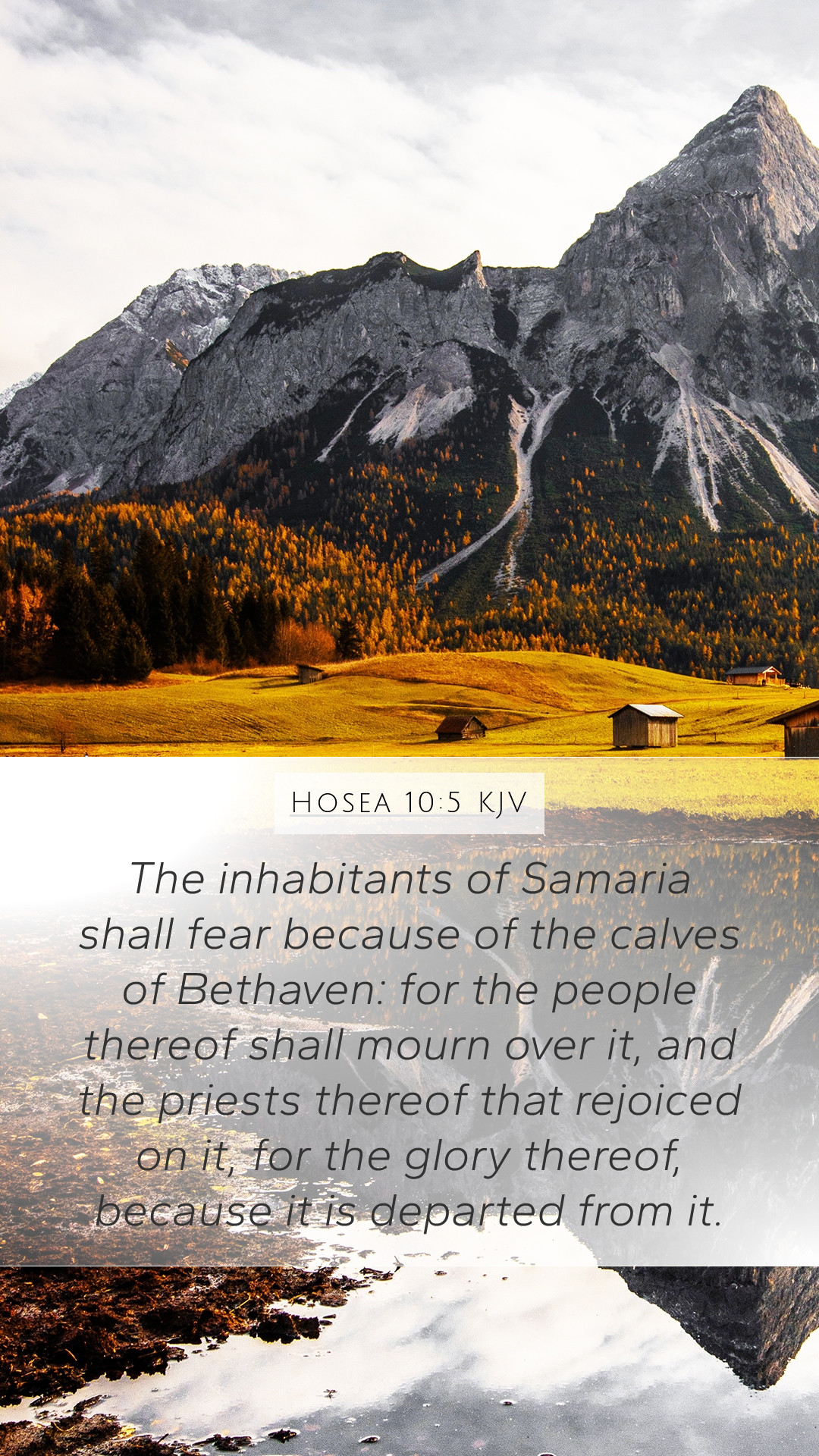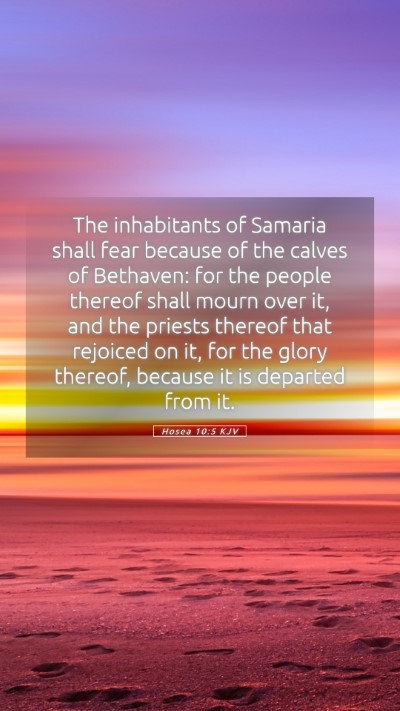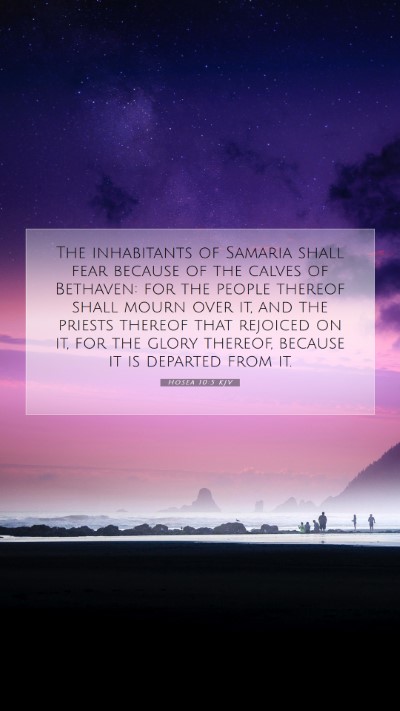Old Testament
Genesis Exodus Leviticus Numbers Deuteronomy Joshua Judges Ruth 1 Samuel 2 Samuel 1 Kings 2 Kings 1 Chronicles 2 Chronicles Ezra Nehemiah Esther Job Psalms Proverbs Ecclesiastes Song of Solomon Isaiah Jeremiah Lamentations Ezekiel Daniel Hosea Joel Amos Obadiah Jonah Micah Nahum Habakkuk Zephaniah Haggai Zechariah MalachiHosea 10:5 Meaning
What is the meaning of Hosea 10:5?
The inhabitants of Samaria shall fear because of the calves of Bethaven: for the people thereof shall mourn over it, and the priests thereof that rejoiced on it, for the glory thereof, because it is departed from it.
Hosea 10:5 Bible Verse Meaning
Bible Verse Meaning: Hosea 10:5
Hosea 10:5 states, "The inhabitants of Samaria shall fear because of the calves of Beth-aven; for the people thereof shall mourn over it, and the priests thereof that rejoiced on it, for the glory thereof, because it is departed from it." This verse reflects the profound socio-political and spiritual reality in ancient Israel.
Overview and Context
The historical context of Hosea revolves around the Northern Kingdom of Israel's impending judgment due to their unfaithfulness. The idols in Beth-aven (a derogatory name for Bethel) symbolize the idolatry that turned the people away from true worship of God. Commentators emphasize the strong emotions tied to fear and mourning which arise from the loss of the calves, symbolic of their misplaced faith.
Key Themes and Insights
- The Fear of Judgment: The inhabitants of Samaria are depicted as fearing the consequences of their sin. As Matthew Henry notes, this fear is a warranted response to their impending doom.
- Idolatry and Mourning: Albert Barnes suggests that the people’s mourning signifies a recognition of their tragic misdirection in worship. It contrasts true devotion with false worship.
- The Role of Priests: Adam Clarke highlights the priests' role in leading the people into idolatry and rejoicing in what ultimately leads to destruction.
In-Depth Analysis
According to Bible study insights, the reference to calves points toward the calf idol that was set up by Jeroboam, an attempt to rival Jerusalem’s worship. These calves symbolize the larger issue of turning from God and rejecting His commandments. In-depth analysis reveals that Israel’s spiritual state directly correlates with their social and political deterioration.
Application and Relevance
For modern readers, Hosea 10:5 serves as a stark reminder of the consequences of idolatry and the necessity of introspection in our own lives. It urges Christians to examine what they place their trust in, ensuring it aligns with true biblical teachings.
Additional Commentary Insights
Both Matthew Henry and Albert Barnes underline the futility of relying on false gods and the spiritual desolation that follows such choices. The glory that departs points to the loss of God’s favor, which leaves a void in the lives of those who reject Him.
Cross References
- Hosea 4:17 – “Ephraim is joined to idols; let him alone.”
- Exodus 32:8 – The worship of the golden calf during Moses' absence.
- Amos 8:14 – Dependence on false gods.
- Jeremiah 2:13 – “For my people have committed two evils; they have forsaken me the fountain of living waters, and hewed them out cisterns.”
Conclusion
In summary, Hosea 10:5 encapsulates critical themes about idolatry, fear, mourning, and the consequences of rejecting God. It serves as a relevant scripture analysis that reminds believers of the importance of rooting their faith in God's truth, rather than in the ephemeral or false representations of worship.
FAQs about Bible Verse Interpretations
What does Hosea 10:5 mean?
This verse illustrates the fear and mourning of the people of Samaria over their idolatry, warning of the consequences of forsaking God.
How can I apply the message of Hosea 10:5 to daily life?
Believers are encouraged to reflect on what they prioritize in life and ensure it aligns with God’s word to avoid spiritual desolation.
What is the significance of the calves mentioned in Hosea 10:5?
The calves symbolize Israel’s idolatry, representing a break from true worship and the divine consequences that follow.


